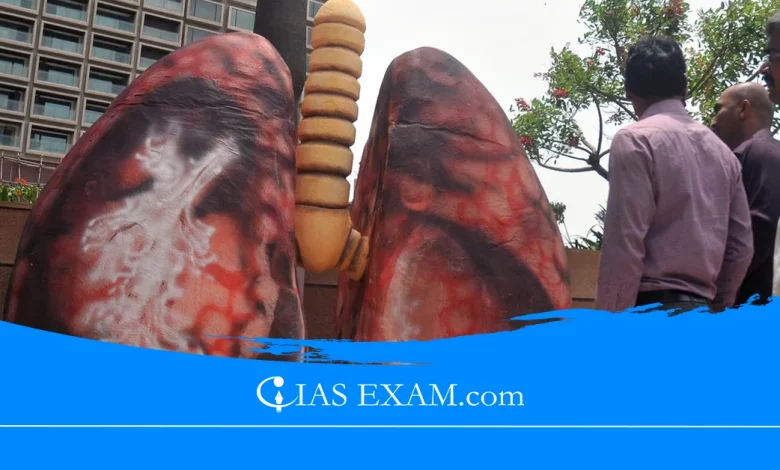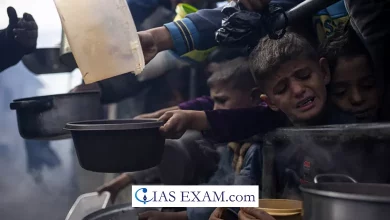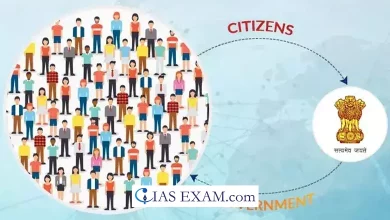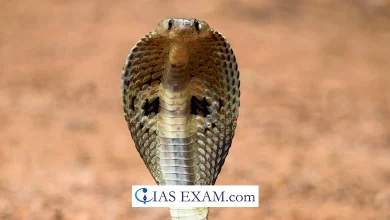Daily Current Affairs for UPSC
ICMR’s Evidence-Based Norms for Lung Cancer Management
Syllabus: Science & Technology, [GS Paper - 3]

Context
- The Indian Council of Medical Research (ICMR) plans to carry out a gold standard systematic reviews and meta-analyses exercise which aims to bridge a knowledge gap in treatment practices for lung cancer management. This study will allow developing and changing of the clinical decisions made and also the level of the patient’s outcome.
About Lung Cancer and its overall management
- Lung cancer is a disease that arises from the lungs when abnormal cell growth is rapid and leads to the formation of tumours; at which case the affected area may transform into crystals. There are two main types of lung cancer: synonymous with non-small cell lung cancer which is frequently encountered and slow growing in nature and small cell lung cancer that are the rare varieties and have a faster rate of growth.
- A lung cancer treatment program in general is made up of a group process, and a few types of treatment can be employed in the form of surgery, chemotherapy, radiation therapy, targeted therapy, and immunotherapy. The needed therapy is evaluated focusing on the variables such as the type of the cancer which is divided into Clinical and Favourable cancer subtypes, the stage of tumour development, anybody’s general health, and the personal features of the patient.
- For the most part, primary lung cancers through surgeries are removed with no limit to the tumour surroundings. Adjuvant treatment is a common practice immediately after surgery. It may also happen that this adjuvant therapy is used to completely get rid of any gnawing cancer cells post surgery, or in case if the cancer is already in a progressed state then this therapy may act as the main treating plan. The advent of precision medicine, e.g. targeted therapy and immunotherapy, are cutting-edge that focus on genetic errors that can help to fight different types of cancer. They also aid the development of the body’s immune system in order to recognize and break down cancerous cells.
- Palliative care indeed is one of the most important parts of lung cancer treatment which focuses on managing symptoms, providing pain relief, nutritional support, psychological support and eventually attaining a comfortable life for an individual with lung cancer.
- Cancer management of the lung would depend critically and accurately on the formulation of specific treatment plan for patients individually, and also embracing research output yield such as the real case scenario from the ICMR research, to yield higher levels pertinent better care and outcomes.
ICMR & It’s Evidence-Based guidelines
ICMR:
- While the ICMR-National Institute of Medical Research being the main research institution of biomedical research in India controls and gives directions to all the national research quests.
- It is a domain of healthy activity of the ministry of health and family welfare that deals with the coordination of research activities in the different areas of health concerns and strategy development in light of the findings of the research.
- The ICMR Board of Recognition additionally has the responsibility of delineating the research priorities of the country, revealing standards and surveillance of a networked research institute and laboratories across the country.
It’s Evidence-Based Guidelines
- The prestigious Indian Council of Medical Research (ICMR) is now inviting researchers to participate in systematic reviews and meta-analyses on lung cancer so that more reliable evidence can be provided on the disease and better decision-making and patient outcomes can be generated in lung cancer prevention, screening, diagnosis, management, and end-of-life care.
- Lungs cancer is a large issue of India in regard with the growing ratio annually, reaching 10 percent total death sufferers due to cancer. The recent ICMR study on lung cancer has thrown light on the fact that there are no established guidelines including prevention, screening, management, and palliative care for it in India.
- The review teams shall be charged with the responsibility of carrying out the comprehensive reviews of the current literature with thirty-specific review questions that the Guideline Development Group has identified within the areas of lung cancers.
- Gathering evidence around the link between smoking, air pollution and lung cancer and prevent these from happening to avoid it.
- ICMR emphasised that it is implementing a new mechanism within the Ministry of Health that will assist in the production of evidence-based guidelines for India, which will support a widespread health care delivery.
- This effort is a comprehensive intervention between the Ministry of Health and Family Welfare whereas, the DGHS and the Department of Health Research are standing partners.
- This, a very scientific process which is comprehensive and strong, containing the latest data and reviews.The process involves systematically gathering and combining existing literature through systematic reviews and meta-analyses that address specific research questions.
Source: The Economic Times
UPSC Mains Practice Question
Q.Discuss the significance of the Indian Council of Medical Research’s (ICMR) initiative to develop evidence-based guidelines for lung cancer management in India. How can systematic reviews and meta-analyses contribute to improving clinical decisions and patient outcomes in lung cancer prevention, screening, diagnosis, treatment, and palliative care?[250 Words]





.png)



